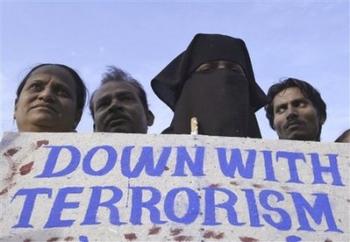[dropcap]B[/dropcap]etween violence perpetrated by ISIS in the Middle East and the rising Islamophobic sentiment in the United States and Europe, the topic of Islam and its relation to extremist violence has been on the tips of everyone’s tongues.
Conservative and liberal pundits alike have taken to attacking the Muslim faith – most notably folks like Bill Maher, who has been using his television airtime to launch an ideological crusade against Islam.
[pullquote]“What we’ve said all along, and have been called bigots for it, is when there’s this many bad apples, there’s something wrong with the orchard,” said Maher on his show “Real Time.”[/pullquote]
Alongside Maher (perhaps Maher is the one alongside them) are “New Atheist” authors and speakers like Sam Harris, who are outspoken about their beliefs. They think that religion, particularly Islam, is society’s central, most dangerous problem and thus must be extinguished.
Writers and scholars like Reza Aslan have been quick to challenge Maher and Harris on their ideological aggression. But even so, it has become clear that the Western public’s opinion of Islam has been deteriorating.
This anti-Islamic sentiment manifested tragically on Feb. 10 when Craig Stephen Hicks, an avowed, outspoken atheist, shot and killed three young Muslim college students: Deah Shaddy Barakat, Yusor Mohammad Abu-Salha and Razan Mohammad Abu-Salha, in their home in Chapel Hill, N.C.. The most revealing thing about this shooting, however, was not the Islamophobic prejudice that drove the murders, but the relatively muted reaction from the country’s media and politicians.
Contrasting to the outrage expressed towards January’s Charlie Hebdo shooting, the response to the Chapel Hill murders can best be described as “relatively apathetic.” News coverage lasted only a day or two. There were no marches or protests, but quiet vigils held for the slain students.
While the Charlie Hebdo attack resulted in an extended (and largely misinformed) outcry in the media about “the defense of free speech,” hardly a word has exited the mouths of these news pundits concerning “the defense of freedom of religion” as it applies to Islam.
Though I do not intend to suggest that the writers and comics behind Charlie Hebdo had it coming or asked for what happened to them, it’s worth noting that their publication was based on being intentionally provocative. The staff of the magazine had been threatened many times in the past, yet felt strongly enough about the content of their work that they refused to yield.
Charlie Hebdo did go toe-to-toe ideologically with quite a few dangerous people, and their response was savage and brutal. Those murders were tragedies, which was the result of a risk that the writers of Charlie Hebdo willingly took and gave their lives for.
By contrast, Barakat and the Abu-Salhas took no such risk. Their only offense, in the eyes of Hicks, was their religion and culture.
Despite claims about a parking dispute, other neighbors had reported similar confrontations with Hicks – confrontations that were not fatal.
The three young people never put themselves in the line of fire the way Charlie Hebdo did. The specific irrationality and senselessness of this crime is incredibly disturbing, and it reveals an entire destructive, violent cultural subtext that is on the rise in the Western world.
The reality of this is powerful and frightening, and yet where is the media coverage? Where is the outrage? The protests? The media personalities with long-winded speeches and seemingly endless barrage of tweets? The quotable comedians who have so much to say when a Muslim extremist kills somebody in the name of Islam? Nowhere to be seen, nowhere to be heard.
The reality is that while it took years of Charlie Hebdo’s goading of religious extremists to induce violent results, the peaceful majority of Muslims live in fear of retaliation, despite doing nothing to invite such anger. Hicks’ murders were no less an act of cultural and religious terrorism than those that occurred in France.
It’s time we started experiencing outrage against all forms of violence and ideological terrorism in our society, not just the ones that reinforce our own deeply-rooted cultural prejudices.
Whether in the name of Islam, Christianity, atheism or any zealous belief, terrorism is terrorism. Violence is violence. And so long as we let terrorists like Hicks kill off our youth with little more than a shrug and a furrowed brow from our media, our politicians, and our culture as a whole, we will be destined to see more of this catastrophic violence perpetrated on our own soil.
Andrew Allen is a sophomore majoring in communications.
Featured image courtesy Flickr user Bird Eye






